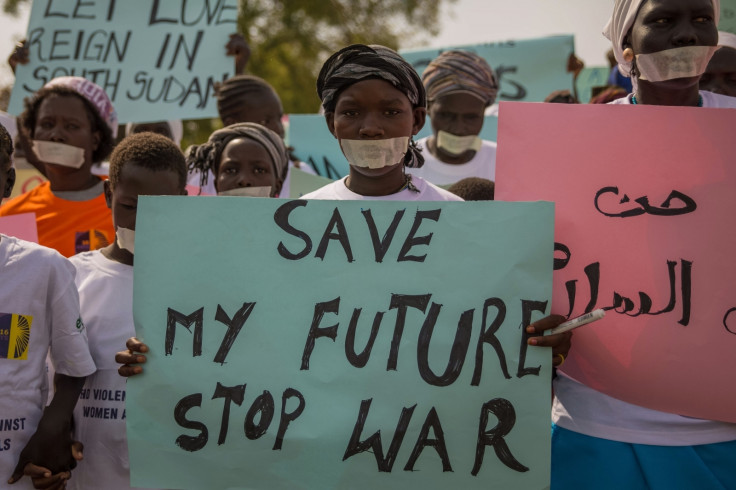Broken ceasefire during Sudan crisis forces UK government to evacuate British nationals
According to the Sudanese Doctors Union, only 23 of the 78 hospitals in the capital remain operational. Meanwhile, the UK makes plans to evacuate British diplomats.

Residents in Khartoum reported shelling and gunfire between the Rapid Support Forces (RSF) and soldiers in the capital. Witnesses reported seeing black smoke on Friday morning.
Antonio Guterres, the UN secretary general, and Antony Blinken, the US secretary of state, called for a ceasefire in respect of Eid al-Fitr – which marks the end of the Ramadan fast.
Street combat broke the planned ceasefire, agreed upon by both the RSF and the Sudanese Army. The RSF had previously released a statement, saying that they respected the 3-day armistice and that it would, "open humanitarian corridors to evacuate citizens and give them the opportunity to greet their families".
The US-brokered truce in Sudan also failed and lasted no more than a few hours.
— Spriter (@Spriter99880) April 26, 2023
The day before, the US Secretary of State announced that the Sudanese Army and the Rapid Reaction Force had agreed to a 3-day ceasefire starting Tuesday morning, but Sudanese sources recently… pic.twitter.com/YMS17UrsYp
Witnesses spoke of explosions coming from all directions, with many people cheering on the soldiers in the area. There are also reports of fighter jets and helicopters flying above the area. The conflict occurred in areas that housed residents, schools, shops, restaurants, a mosque, and a playground. The shells have hit essential buildings that supply electricity and running water to the city.
According to the Sudanese Doctors Union, only 23 of the 78 hospitals in the capital remain operational. Doctors have spoken about being under pressure due to an influx of patients and have warned of their struggle to cope with their current circumstances. Medics have also reported their patients' health deteriorating, due to fear over the combat taking place only streets away. Hospitals in Khartoum have seen 279 people injured since the fighting began, 44 of which have passed away.
Footage from last week inside a North Darfur hospital we support in Sudan-
— Doctors w/o Borders (@MSF_USA) April 25, 2023
Since the fighting began on April 15th, majority of the wounded are civilians hit by stray bullets, and many are children.
Many patients had to be treated on the floor because there aren’t enough beds. pic.twitter.com/EK7vq4nHqn
While the street combat continued, residents retreated into their homes, not knowing what could happen next. Thousands of civilians attempted to flee the city to northern Sudan, while the fighting escalated. People took buses out of Khartoum, while others climbed onto trucks instead. Travelling out of the city is dangerous, and a struggle considering there are hotbeds of rebel groups situated in and around the capital. The UN has made known that around 20,000 people, made up of mostly women and children, have escaped Sudan. Most people have arrived in Chad, to seek safety from the conflict.
Over 150 people have been evacuated from Sudan and have arrived in Jeddah. The group of people include diplomats and government officials. Their rescue was carried out by Saudi Arabia's naval forces. On Friday, Rishi Sunak, Prime Minister, conversed about the conflict with the President of Djibouti, Ismail Omar Guelleh.
A Government spokesperson said that "We are doing everything possible to support British nationals and diplomatic staff in Khartoum".
Rishi Sunak chaired a COBRA meeting that took place to discuss the concerns regarding British nationals being trapped in the area. The Sudanese Army has since announced that diplomats and nationals from the UK, France, China, and the US will be evacuated from Khartoum – using military planes.
The Word Health Organisation has revealed that more than 400 people have been killed, but unfortunately, this number will increase dramatically as people struggle to make their way to hospitals.
© Copyright IBTimes 2025. All rights reserved.






















